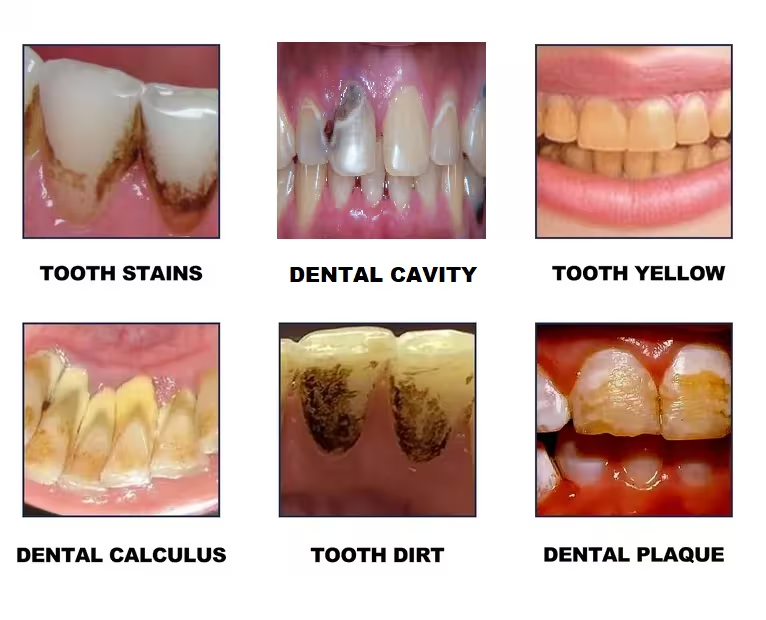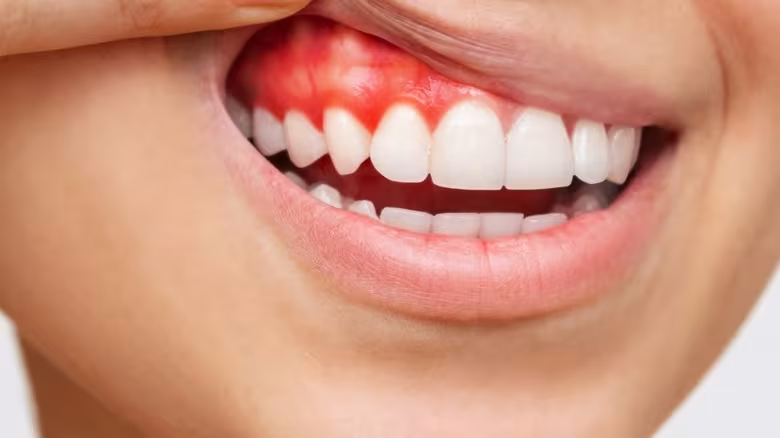Are you struggling with stubborn stains and discolorations on your teeth from daily coffee, red wine, or smoking?
While regular dental cleanings can help remove some surface stains, professional teeth whitening is the most effective solution for achieving that bright, confident smile you desire.
In this comprehensive guide, we’ll explore everything you need to know about teeth whitening in Singapore, from understanding the causes of tooth discoloration to comparing treatment options, costs, and best practices for maintaining your results.
What is Teeth Whitening?

Teeth whitening is a cosmetic dental procedure that uses bleaching agents (typically hydrogen peroxide or carbamide peroxide) to break down stains into smaller particles, reducing their concentration and making teeth appear brighter.
The process works by allowing these bleaching agents to penetrate the tooth’s semi-permeable surface. Once inside, they trigger a chemical reaction that breaks apart the bonds of chromogenic (stain-causing) molecules. These molecules are then converted into harmless water and oxygen that pose no risk to your oral health.
It’s important to understand that teeth whitening is designed to help your teeth reach their natural color potential by removing accumulated stains rather than changing the fundamental color of your teeth. The natural shade of your teeth is largely determined by genetics, which explains why results can vary from person to person.
Read more: The Ultimate Guide To Seeing A Dentist In Singapore
Understanding Tooth Discoloration

Before seeking treatment, it’s helpful to understand what causes teeth to become discolored in the first place. Tooth discoloration generally falls into two main categories:
Extrinsic Stains
What they are: Stains that occur on the outer surface of the tooth (enamel) Common causes:
- Coffee, tea, and red wine consumption
- Smoking and tobacco use
- Deeply colored foods (berries, curries, tomato-based sauces)
- Poor oral hygiene that allows plaque buildup
Extrinsic stains are the most common form of discoloration since the enamel is constantly exposed to everything we eat, drink, and inhale. These stains typically respond well to professional cleaning and whitening treatments.
You maybe interested in: White Spots On Teeth: Causes, Treatments, and Prevention
Intrinsic Stains
What they are: Stains that occur in the inner layer of the tooth (dentin) Common causes:
- Certain medications (particularly antibiotics like tetracycline)
- Tooth injuries or trauma
- Excessive fluoride exposure during childhood
- Genetics
- Advanced tooth decay
- Root canal treatments
Intrinsic stains present more significant challenges because the discoloration occurs within the tooth structure itself. These stains often appear brown or grayish and may not respond as well to conventional whitening methods.
Age-Related Discoloration
As we age, both extrinsic and intrinsic factors contribute to discoloration:
- Enamel naturally thins over time, revealing more of the yellowish dentin underneath
- Dentin becomes denser and yellower with age
- Lifetime exposure to staining foods and beverages
This natural aging process explains why older adults typically have teeth that appear more yellow or discolored than younger individuals.
Read more: Common Dental Problems in the Elderly: Symptoms, Prevention, and Treatment
Teeth Whitening Options in Singapore
Singapore offers a range of teeth whitening solutions to meet different needs, preferences, and budgets. Here’s a detailed breakdown of your options:
1. Professional In-Office Treatments
How it works: A dentist applies a high-concentration bleaching agent (25-40% hydrogen peroxide) directly to the teeth, often activating it with a special heating lamp or laser to enhance results.
Pros:
- Most effective and powerful whitening option
- Visible results after just one session (teeth can be up to ten shades lighter)
- Performed under professional supervision for safety
- Treatment takes only about one hour
- Results can last 1-3 years with proper maintenance
- Dentists can spot-treat particularly discolored teeth for more even results
Cons:
- Most expensive option ($800-$1,300 per session)
- May cause temporary tooth sensitivity
- Requires scheduling a dental appointment
Best for: People seeking immediate, dramatic results; those with important upcoming events; individuals with moderate to severe discoloration.
You might want to read: Choosing The Right Dental Surgeon in Singapore
2. Dentist-Prescribed Take-Home Kits
How it works: The dentist creates custom-fitted trays based on impressions of your teeth. You apply a professional-grade whitening gel to these trays and wear them for a specified period (usually 30-60 minutes daily) over 2-4 weeks.
Pros:
- More affordable than in-office treatments ($400-$600)
- Custom-fitted trays ensure even application and minimize gel contact with gums
- Can be used at your convenience
- Gradual whitening allows for controlled results
- Generally gentler for people with sensitive teeth
- Professional oversight ensures safety
- Custom trays can be reused for future touch-ups
Cons:
- Takes longer to see results (maximum results after 2-4 weeks)
- Requires discipline to follow the treatment regimen
- Need to avoid colored foods and drinks during treatment
- Self-application may result in some gel contacting gums
Best for: People who prefer gradual whitening; those with sensitive teeth; individuals who want professional results but at a lower cost than in-office treatment.
3. Over-the-Counter (OTC) Products
How it works: These commercially available products contain lower concentrations of whitening agents (in Singapore, the Health Sciences Authority limits OTC products to 0.1% hydrogen peroxide).
Types of OTC whitening products:
Whitening Strips
- Thin, flexible plastic strips coated with peroxide gel
- Applied directly to teeth for 30 minutes daily
- Results vary by brand
- Starting at $12 per package
Whitening Toothpastes
- Contains mild abrasives and small amounts of peroxide
- Results take several months of regular use
- May cause tooth sensitivity if used long-term
- Can be helpful for maintaining professional whitening
Whitening Mouthwashes
- Contains very low levels of hydrogen peroxide
- Minimal effectiveness when used alone
- Best used to supplement other whitening methods
- Results may take up to 3 months
- Includes gel and LED light that claims to accelerate whitening
- Results vary significantly between brands
- Starting at $30
Pros:
- Most affordable option
- Readily available without a prescription
- Convenient to use at home
Cons:
- Significantly less effective than professional options
- Takes much longer to see results
- Cannot treat intrinsic stains
- Higher risk of misuse leading to sensitivity or gum irritation
- Non-custom trays can cause gel leakage onto gums
- May damage enamel if used improperly or too frequently
Best for: People with minimal discoloration; those seeking to maintain results after professional treatment; individuals on a tight budget.
You might want to read: The Complete Guide to Teeth in a Day in Singapore
4. Beauty Salon Teeth Whitening
Some beauty salons offer teeth whitening services at lower prices ($100-$200) than dental clinics. However, these treatments raise several concerns:
- Staff lack dental training and qualifications
- Products used may not meet safety standards
- Higher risk of improper application
- Limited effectiveness compared to dental treatments
Dental professionals generally advise against seeking teeth whitening at non-dental establishments due to potential risks to oral health.
Comparing Treatment Effectiveness and Timeframes
| Treatment Type | Effectiveness | Time to See Results | Duration of Results |
|---|---|---|---|
| In-office professional | Highest (up to 10 shades lighter) | Immediate (1 hour) | 1-3 years with proper maintenance |
| Take-home dental kits | High (6-8 shades lighter) | 2-4 weeks | 1-2 years with proper maintenance |
| Whitening strips | Moderate (2-4 shades lighter) | 1-2 weeks | 4-6 months |
| Whitening toothpaste | Low (removes surface stains only) | 2-3 months | Temporary, requires continued use |
| Whitening mouthwash | Very low | Up to 3 months | Minimal |
Is Teeth Whitening Safe?

When performed by qualified dental professionals, teeth whitening is considered safe for most individuals. However, it’s not suitable for everyone, and there are some potential side effects to be aware of:
Common Side Effects
Tooth Sensitivity
- Temporary sensitivity to temperature changes is common
- Usually subsides within a few days after treatment
- More common with higher-concentration products
- Dentists may recommend desensitizing toothpaste or fluoride gel before/after treatment
Gum Irritation
- Can occur if whitening gel contacts gums
- More common with ill-fitting trays or improper application
- Usually mild and resolves quickly
- Professional treatments include protective barriers for gums
Read more: Receding Gums in Singapore: Causes, Treatments & Prevention
Whitened Gums
- Temporary lightening of gum tissue if exposed to whitening agents
- Most common with crowded teeth or areas of gum recession
- Color returns to normal as the bleaching agent wears off
Who Should Avoid Teeth Whitening?
Teeth whitening may not be suitable for:
- Pregnant or breastfeeding women
- Children under 16 years of age
- People with severely worn enamel or exposed dentin
- Individuals with untreated cavities or gum disease
- Those with numerous restorations (fillings, crowns, veneers)
- People with extreme tooth sensitivity
- Individuals allergic to peroxide
Always consult with a dentist before undergoing any whitening treatment, especially if you have existing dental issues or medical concerns.
Related article: The Ultimate Guide to Dental Implants in Singapore
How Much Does Teeth Whitening Cost in Singapore?
Teeth whitening costs in Singapore vary widely depending on the treatment type, clinic location, and specific products used. Here’s a general price guide:
| Treatment Type | Price Range (SGD) |
|---|---|
| Professional in-office whitening | $800-$1,300 per session |
| Take-home kits (from dentist) | $400-$600 |
| Over-the-counter whitening strips | $12-$60 per package |
| LED whitening kits | $30-$100 |
| Laser teeth whitening | $500-$1,500 |
| Beauty salon treatments | $100-$200 |
Many dental clinics in Singapore offer package deals that combine in-office treatment with take-home maintenance kits for optimal results and value.
How Long Do Teeth Whitening Results Last?
The longevity of teeth whitening results depends on several factors:
- Treatment type: Professional in-office and take-home treatments generally provide longer-lasting results (1-3 years) compared to OTC products (a few months).
- Lifestyle habits: Consuming staining foods and beverages (coffee, tea, red wine) or smoking can significantly shorten the duration of results.
- Oral hygiene: Regular brushing, flossing, and professional cleanings help maintain whitening results.
- Natural aging: As we age, teeth naturally yellow regardless of whitening treatments.
No whitening treatment provides permanent results. Even with the best care, teeth will gradually return to their natural shade or become stained again over time. Regular maintenance and touch-up treatments are necessary to sustain a bright smile long-term.
Can I Permanently Whiten My Teeth?
Unfortunately, no teeth whitening treatment will give permanently white teeth. For those seeking a more lasting solution, dental veneers are an alternative to consider:
Dental Veneers
- Thin, custom-made porcelain shells bonded to the front surface of teeth
- Can be made in any shade of white you prefer
- Last 10-15 years with proper care
- Also correct other cosmetic issues (chips, minor misalignment, gaps)
- Significantly more expensive than whitening ($1,000-$2,500 per tooth)
- Require removal of a small amount of enamel (irreversible procedure)
Single Tooth Whitening
If you have just one discolored tooth (often following a root canal treatment), your dentist might recommend internal bleaching (also known as walking bleach technique):
How it works: The bleaching agent is placed inside the tooth rather than on the external surface. This technique is only suitable for teeth that have undergone root canal treatment and aren’t severely damaged.
A persistently discolored single tooth might indicate other issues requiring attention:
- Tooth decay
- A dying or dead nerve
- Previous trauma or injury
- Need for a root canal procedure
Always consult a dentist about single-tooth discoloration rather than attempting to treat it yourself.
Maintaining Your Whitening Results
To extend the life of your teeth whitening results:
Do’s
- Maintain excellent oral hygiene: Brush twice daily with a soft-bristled toothbrush and floss daily.
- Use whitening toothpaste for maintenance: These can help remove surface stains before they set in.
- Rinse after consuming staining foods/drinks: If you can’t brush, at least rinse your mouth with water.
- Use a straw for dark beverages: This helps minimize contact between staining liquids and your teeth.
- Schedule regular dental checkups and cleanings: Professional cleanings every six months help remove surface stains before they penetrate deeper.
- Consider occasional touch-up treatments: Using your custom trays or scheduling periodic professional treatments helps maintain your results.
Don’ts
- Avoid or limit staining foods and drinks: Coffee, tea, red wine, dark sodas, berries, and curry can all contribute to re-staining.
- Don’t smoke or use tobacco products: These are major contributors to tooth discoloration and undo whitening results quickly.
- Avoid abrasive toothpastes: Some whitening toothpastes contain harsh abrasives that can wear down enamel over time.
- Don’t overuse whitening products: Following your dentist’s recommendations prevents enamel damage and sensitivity.
Finding a Qualified Dentist for Teeth Whitening in Singapore
For safe and effective teeth whitening, it’s important to choose a qualified dental professional. In Singapore:
- Check registration: Ensure the dentist is registered with the Singapore Dental Council (SDC). You can verify this through the Ministry of Health Singapore website.
- Research the clinic: Look for established dental practices with good reviews and before/after portfolios of their whitening treatments.
- Schedule a consultation: Most reputable dentists offer consultations to assess your suitability for whitening and discuss treatment options.
- Ask questions: Inquire about the products used, expected results, potential side effects, and aftercare instructions.
- Be wary of unrealistic promises: Be skeptical of clinics promising extreme results or “permanent” whitening.
Frequently Asked Questions
1. Is teeth whitening painful?
Professional teeth whitening performed by a qualified dentist is generally painless. Some people experience temporary sensitivity during or after treatment, but this typically subsides within a few days. Dentists can recommend desensitizing products to minimize discomfort.
2. Will teeth whitening work on my crowns, veneers, or fillings?
No, teeth whitening only works on natural tooth enamel. Dental restorations such as crowns, veneers, fillings, and bridges will not change color with whitening treatments. If you have visible restorations, discuss this with your dentist, as you may need to replace them to match your newly whitened teeth.
3. How white should my teeth be?
The ideal shade varies from person to person. A good rule of thumb is that your teeth should appear natural and complement your skin tone, rather than looking artificially white. Many dentists suggest that teeth should not be whiter than the whites of your eyes for the most natural appearance.
4. Is over-the-counter whitening as effective as professional treatments?
No, OTC products contain significantly lower concentrations of whitening agents (limited to 0.1% hydrogen peroxide in Singapore) compared to professional treatments (25-40%). This means they take much longer to show results and typically achieve less dramatic whitening. They’re better suited for maintaining results or addressing very mild discoloration.
5. How often can I whiten my teeth?
For professional in-office whitening, most dentists recommend waiting at least 6-12 months between treatments to prevent damage to tooth enamel. For take-home kits, follow your dentist’s specific instructions. OTC products should be used according to manufacturer guidelines, but be cautious about overuse.
6. Why do my teeth look more yellow after whitening?
Immediately after whitening, teeth may appear more translucent due to temporary dehydration. As they rehydrate over the next 24-48 hours, their true whitened color becomes apparent. If teeth still appear yellow after this period, it may be due to the natural color of your dentin showing through thinning enamel, which whitening cannot change.
7. Can teenagers get their teeth whitened?
Most dentists recommend waiting until at least 16 years of age for teeth whitening, as younger patients may have more sensitive teeth and still-developing dental structures. For teenagers with discoloration concerns, consult with a dentist about the most appropriate options.
8. Is teeth whitening covered by insurance in Singapore?
Generally, teeth whitening is considered a cosmetic procedure and is not covered by most dental insurance plans. However, some premium insurance packages may offer partial coverage or discounts. Check with your insurance provider for specific details about your coverage.
9. Can I whiten my teeth if I have gum disease or cavities?
It’s not recommended to undergo teeth whitening if you have untreated gum disease or cavities. These conditions should be addressed first, as whitening agents could cause significant pain and potentially worsen existing problems. Your dentist will likely recommend completing necessary treatments before proceeding with whitening.
10. What’s the difference between hydrogen peroxide and carbamide peroxide?
Both are effective whitening agents, but they work slightly differently:
- Hydrogen peroxide is more reactive and works more quickly
- Carbamide peroxide breaks down more slowly, releasing hydrogen peroxide over time
- Carbamide peroxide at 10% is roughly equivalent to 3.5% hydrogen peroxide
- Take-home kits often use carbamide peroxide for its longer active period, while in-office treatments typically use hydrogen peroxide for faster results
Conclusion
Teeth whitening can be a safe and effective way to enhance your smile when performed correctly. In Singapore, you have multiple options ranging from professional in-office treatments to at-home solutions, each with their own benefits, limitations, and price points.
For optimal results, consult with a qualified dental professional who can assess your specific needs and recommend the most suitable whitening approach. Remember that maintaining good oral hygiene and limiting consumption of staining substances are just as important as the whitening treatment itself for achieving and preserving a brighter smile.
Whether you’re preparing for a special occasion or simply want to boost your confidence with a brighter smile, understanding your options will help you make an informed decision about teeth whitening in Singapore.

